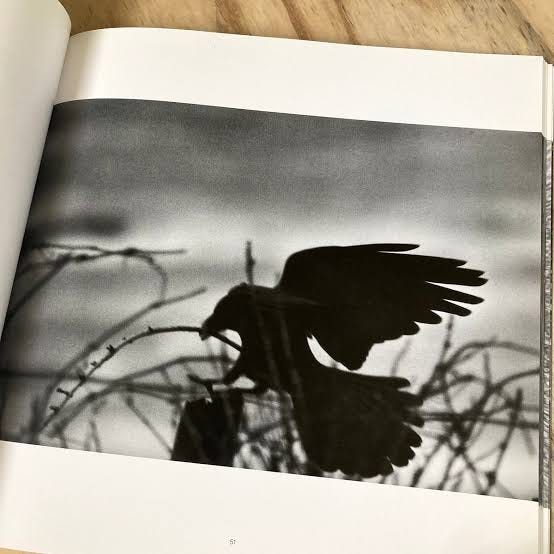Inner rook
The rook's hoarse call has an essence of Old England about it.
—Aubrey Seymour.
{These are the last of my notes; after that I’ll be dry, clean, like the land after a brief May shower, leaves still glistening for an hour. After maghrib Crow has nothing to say, but can only mutter the old refrain like an old man, going over again and again what he already knows in his mind- like a dress rehearsal. The black books with their unreadable pages are elsewhere. Old, Platonic England a dream he once had. From here on in it’s a plunge. How will time pass now without word? Crow waits patiently for the inner rook to appear, raven of his heart}
The crow's restless soul has something of Old Lahore about it.
In the silent courtyard of my home, a crow cawed
Then the sweet rain fell and I remembered you.
—Nasir Kazmi (courtesy of Astarte)
Soft then the voice of rooks from indrawn throat, three or four times repeat
A clear note, and full often there in treetop cradles
charmed by some unfamiliar sweet impulse we cannot guess at
Gossip among the leaves they love, when showers are spent,
To visit again their baby brood, their darling nests
It is not, to my belief, that God has assigned them
A special instinct, or Fate a wider foreknowledge of things;
But when the storm and shifting moisture of the air have changed their courses,
and the sky-god now, wet with the south-wind, thickens what was rare,
And rarefies what was condensed, then, too, change their spirits' fleeting phases.
—Virgil.
“They came at us in a single dark outpouring when the individual calls of the rooks melted into an all-consuming torrent. I seemed to be hearing a sound produced before the fundamental elements of life-silicon, carbon, and hydrogen-had been broken down, redistributed and composed into ten million species. It had an irresistible quality, like the gravitational pull of the moon, luminous like the roar of the stars.”
OVER the land half freckled with snow half-thawed
The speculating rooks at their nests cawed,
And saw from elm-tops, delicate as a flower of grass,
What we below could not see, Winter pass
--Ed Thomas
There, where the rusty iron lies,
The rooks are coming all the day
Perhaps no man, until he dies
Will understand them, what they say
The evening makes the sky look clay
The slow wind waits for night to rise
The world is half content. But they
Still trouble all the trees with cries
That know and cannot put away
The yearning of the soul that flies
From day to night, from night to day
—Charles Sorley
A century passes and no-one knows what pattern time will weave. And below the large arc traced by star and moon the same fate falls on a single human life. Some lives will have their hour on the stage and some lives will fade and fall by the wayside, unspoken, unseen. For some there will be love, a country, a language, for others the book will be blank, their words and deeds lost or forgotten forever, only to be remembered, if at all, unbidden, by the sudden mention of a foreign word, a particular intonation of someone's voice, a grandchild’s question on a Sunday afternoon.
In a previous age there would have been rituals for loss, for transitions...
The time we have is short enough but is made shorter by incomprehension. We live with our summaries, our dark understanding.
When the last of the sunlight goes,
and shadows stretching from the shade
of trees and bushes, long hedgerows,
join up together to invade
wild grasses and flat pasture,
turning from shadow into night...
—Virgil.
Penelope Fitzgerald's The Beginning of Spring is a lovely book. At first it seems as if it is slightly staged (this impression is reinforced by the windows being sealed, the house deaf to the outside world, and by the sharp words spoken by some of the characters, as if a definite character, rather than an individual, were speaking them).
PF is, you think, a painter of surfaces and small landscapes-and all the wiser for it. There is a perfect weight to the various characters, such that each person is given just the right amount of space.



